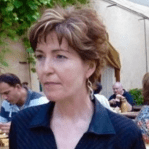24 hours for more sustainable todays and tomorrows
From sustainable landscape restoration that mitigates climate change, to tenure security and innovative financing tools, to climate-smart lifestyle changes, the agenda is wide and deep for an upcoming Global Landscapes Forum (GLF) event in Kyoto.
Under the banner “Climate, Landscapes and Lifestyles: It is Not Too Late,” GLF Kyoto, running for a full day spanning 12 and 13 May across time zones, will bring together some of the best minds from science, business, international development, indigenous peoples, civil society and government to share on-the-ground solutions for a climate-smart future. In addition to reviewing the latest science on climate change and landscape restoration work, GLF Kyoto will seek to highlight new and innovative ideas and initiatives for climate solutions across a myriad of landscapes.
To best include speakers and listeners from around the world, capitalizing on digital resources and saving carbon from travel, this GLF was uniquely designed in three parts. First will be a digital “tapestry” of specially prepared video addresses, short documentaries and art; followed by eight plenaries broadcast live from the International Conference Center in Kyoto; and, lastly, five plenaries broadcasted live from global cities on five continents. Some 200 people will attend in Kyoto, while tens of thousands are expected to join online in the Digital Edition.
Sign up to join the Digital Edition here
“Climate action” has become a frequent term in the environmental sector, and to equip its audience with realistic ways to act more sustainably on a daily basis, many parts of the event will focus on how changes in consumption patterns can make a difference, through choices in nutrition, fashion, transportation, plastic and food waste. Participants will be urged consider the devastating impact that overconsumption is having not only on the planet, but also on personal wellbeing.
The event comes just one day ahead of the meetings – also in Kyoto – of the 49th session of the U.N. Intergovernmental Panel on Climate Change (IPCC), where scientists are expected to work out final details of emission targets aimed at achieving the 1.5 degree Celsius limit for global warming set in the Paris Agreement on climate change. They will build on work that the IPCC began at the same location in 1997 when global leaders, seized by the urgency of climate change, met to negotiate the first legally binding treaty to cut greenhouse gases and find ways to halt the rise in global temperatures. The result of their efforts was the Kyoto Protocol, adopted on 11 December 1997 and entered into force on 16 February 2005.
Mitigating climate change through forests and scaling up their contributions to achieving both the Sustainable Development Goals (SDGs) and targets in the Paris Agreement on climate change is a key topic for GLF Kyoto. A plenary session organized by the UN-REDD Programme will consider how to boost public awareness of forests, and their ability to offer one of the most cost-effective, nature-based solutions to climate change.
Delegates will also discuss how best to enable policymakers, civil society, non-governmental organizations and others to scale up their actions in forest protection and restoration. This work, along with restoration of degraded ecosystems on a massive scale, is among the commitments from the U.N. Decade on Ecosystem Restoration that begins in 2021.
A related session will look at how best to mobilize innovative financial mechanisms to support REDD+ – a global program of UN-REDD that seeks to reduce emissions from deforestation and degradation – and other methods for low-emissions development at the sub-national level in tropical countries. While such approaches are widely promoted, finance and investment to support their progress is still needed.
The International Tropical Peatlands Center, which was founded last year, in collaboration with its founding partner the Center for International Forestry Research (CIFOR), will discuss the critical challenges around peatland conservation and restoration – and tropical peatlands in particular. Over the past 50 years, rising demand for food and natural resources has meant that peat swamp forests have been cleared, drained and turned into oil palm plantations and agricultural cropland, triggering social concerns related to climate change and land tenure.
Forests are critical to delivering on food security, while contributing to poverty alleviation, job creation and biodiversity conservation. As such, a later session will discuss building capacity for sustainable forest and land management, particularly in the Asia-Pacific region where sustainable production and consumption of forest products is proving to be a positive path forward for the livelihoods of local communities.
Other sessions will review innovative legal reforms in tenure and land-based investments that safeguard the rights of women, youth, and local and indigenous peoples. Balancing food security with biodiversity, forest conservation, and climate mitigation and adaptation is the subject of a separate session.
Speakers throughout the day will include Mary Robinson, former president of the Republic of Ireland and former U.N. high commissioner for human rights; Natalie Isaacs, founder and CEO of 1 Million Women, the global movement against climate change; Haruo Sawada, director general of the Forestry and Forest Products Research Institute (FFPRI); Gerhard Dieterle, executive director of the International Tropical Timber Organization (ITTO); and Robert Nasi, director general of CIFOR.
The GLF believes that protecting and restoring landscapes is a critical part of the global strategy to repair climate change and accelerate sustainable development. Landscape solutions can bring major benefits to the global population while aiding human rights for indigenous peoples, local communities and smallholder farmers.
GLF Kyoto: Find out more
We want you to share Forests News content, which is licensed under Creative Commons Attribution-NonCommercial-ShareAlike 4.0 International (CC BY-NC-SA 4.0). This means you are free to redistribute our material for non-commercial purposes. All we ask is that you give Forests News appropriate credit and link to the original Forests News content, indicate if changes were made, and distribute your contributions under the same Creative Commons license. You must notify Forests News if you repost, reprint or reuse our materials by contacting forestsnews@cifor-icraf.org.












